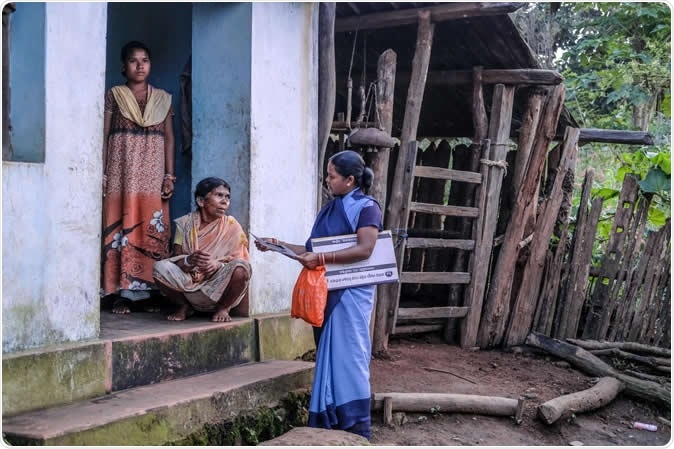About half the people in the world lack access to such coverage, and it is estimated that extremely unaffordable health-related spending causes 100 million people to slip into dire poverty every year.

Image Credit: WHO
What the world needs
The need of the hour is for people as individuals and as communities to gain the ability to use good-quality health services, so they can care for their own health as well as that of their families; for health workers who know how to, and are able and willing to, provide good care centered on patient needs. In short, a satisfactory health system is one that is focused on people in the community setting, and that provides primary health care to all who need it – preventing disease and promoting all-round health and improved quality of life.
To meet this objective, the first step in the field of health is primary health care, extended to reach all people everywhere. With high quality primary health care, the health system can able to meet most health needs throughout one’s life. However, this is still not available to half the people of the world. And to meet this goal, it would require another 18 million skilled and willing health workers.
When it comes to financial backing, only 8 countries out of the meagre 30 for which there is data on healthcare spending have a per capita annual health expenditure of US $40 or more.
The meaning of primary health care
Primary health care means a person-centered society-permeating attitude to health that includes a holistic approach to all the areas of health, physical, social and mental. This approach ensures that healthcare is comprehensive and is available in reasonable proximity to the actual environment of people. It is founded in a sturdy concept of social justice and equity, acknowledging that every human being has the right to live as healthy a life as is possible.
The World Health Organization (WHO) has defined primary health care in three parts:
- Comprehensive provision of promotive, preventive, protective, curative, rehabilitative and palliative care throughout life – getting the most important health care services to everyone via public health services.
- Dealing with the underlying factors that determine health, such as economic and social factors, as well as behavioral or environmental influences, which will shape public policies and actions in the light of their health impacts among other effects.
- Giving everyone the power to improve their health via policy building as well as shaping health services and social change, and helping people to care for themselves as well as for others.
Why primary care is important
The importance of primary care lies in the fact that it is responsive by nature to every factor that determines health and wellbeing, including socioeconomic, sanitation and transportation, and education. Thus, it embraces all of society as its stakeholders to create a state of health and wellbeing.
It is the most effective and efficient way to improve health and remove ill health, both currently and in the future.
Only by strengthening primary health care can the Sustainable Development Goals (SDGs) be achieved, which in turn will lead to an all-round development that will impact poverty, hunger, gender inequality, water unavailability and poor sanitation, as well as unemployment rates and economic growth.
WHO contributions
According to Global Health Observatory data, there is a crisis in the health workforce in 57 countries of the world.
The WHO wants 1 billion more people to have access to universal health coverage by 2023. To achieve this, it provides help to create badly needed infrastructure and services in countries with the worst healthcare systems. Elsewhere, it offers help in shaping health policies and improving the current level of operation of healthcare services. It offers a wealth of services, from guidelines on various healthcare practices and public health administrative practices, to collecting data, offering leadership in negotiating health accords, mediating gender equality, human rights, financial support and health action across several fields.
The WHO maintains and updates the Global Health Expenditure Database to answer such questions as how much different nations spend on health, especially on the under-5 population, on immunization programs, from where the money comes that is spent on health, and the relative contributions of government, insurance companies, families and other donors.
UHC30
UHC30 is the global movement that aims to provide more widespread access to health systems so as to ensure health for all. The WHO recognizes that achieving this goal is primarily a political act, and as such much effort is directed towards convincing governments to initiate and sustain healthy investments in health and to bring about required healthcare system reforms. Education, political lobby building, and mobilization of public opinion are some of the tools used towards this end.